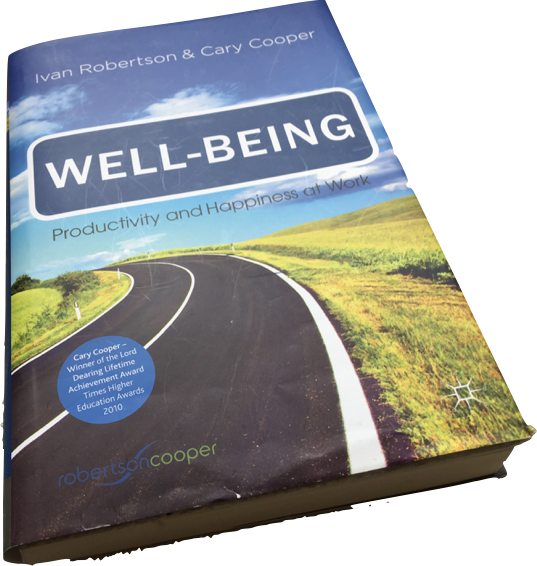Well-being: Productivity and Happiness at Work
Well-being: Productivity and Happiness at Work
Written by John Berry on 28th May 2019.0
2 min read
Robertson, I & Cooper, C (2011) Palgrave Macmillan, Basingstoke, UK
ISBN: 978-0-230-24995-0
Summary
 Psychological wellbeing is important. This book puts it simply: poor psychological wellbeing degrades worker performance and business outcomes. The book draws appropriately on academic research findings to make and justify the argument.
Psychological wellbeing is important. This book puts it simply: poor psychological wellbeing degrades worker performance and business outcomes. The book draws appropriately on academic research findings to make and justify the argument.
Evaluation
We all want and deserve positive, high-quality wellbeing. Wellbeing is instrumental in achievement and success in all our ventures.
The central maxim that pervades Well-being is set out in the table of terms (on page 7) describing what are termed eudaimonic and hedonic well-being. This shows the importance of things that we all know: of competence in what we do, relationships with colleagues, purpose in work, autonomy to achieve our best and the ability to grow. Whilst important, these factors dwarf what we generally think of as ‘wellbeing’: our feeling of happiness and the expression of positive emotions.
We learn in the book that whilst personality is important – and hence that some people are more inclined to enjoy positive wellbeing than others – environment is more significant. And of course, the manager substantially controls this latter antecedent. Well-being disappointingly does not really make this link. The manager gets scanty mention in Part 4 and is replaced by the organisation as prime player.
Well-being is about psychological wellbeing. It is not about physiological wellbeing and how mental and physical illnesses intertwine. The book must be read with this in mind.
Well-being and its case studies focus on the authors’ company’s tool, ASSET, for assessing wellbeing. This narrows the discussion somewhat.
Conclusion
Well-being makes the point about the importance of wellbeing but tries to dumb-down the science by adding unnecessary explanations of theories and evidence. There’s no central model or take-away, nothing for the manager to use. Just argument about importance. Unfortunately, the result is a muddled book that lacks the style of language and clarity of argument of other authors like Ian Robertson (The Winner Effect) and Jonathan Haidt (The Happiness Hypothesis). It’s a book that can be very quickly consumed by skim-reading without loss of meaning, particularly where the reader has a good foundation in management through practice or study. That said, it is essential reading for all managers. Just be a bit tolerant, stick with the repetition, jump the excessive elaborations and don’t stop ‘till the end. Then reflect.